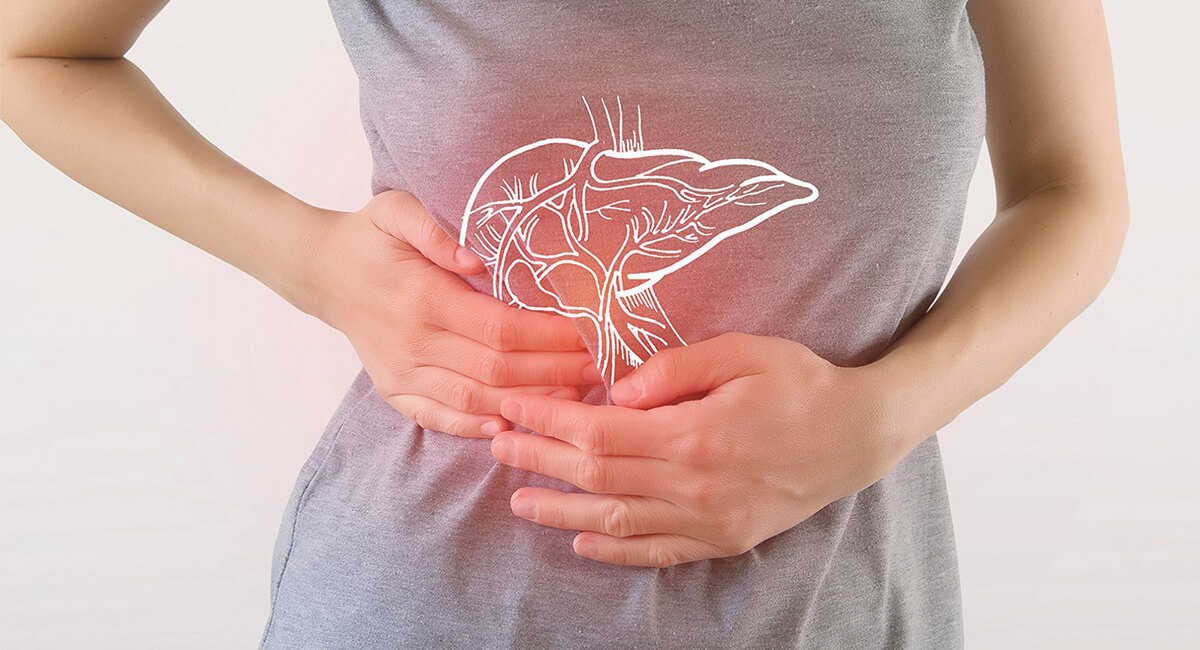
Introduction
The liver is an important organ in our body, and it performs a variety of complex functions. Any form of damage to the liver can affect the entire body. However, it may take a while for the damage to become noticeable.
Alcoholic Liver Diseases is a chronic liver condition that is caused due to an over-consumption of alcohol. It may result in inflammation, fat build-up, or scarring of the liver tissues.
There are three stages of Alcoholic Liver Diseases. They are:
- ● Alcoholic fatty liver disease: Consuming too much alcohol can cause fats to deposit in the liver. This is known as alcoholic fatty liver disease. It is the first stage of alcoholic liver disease and is reversible.
- ● Acute Alcoholic hepatitis: It is the second stage of alcoholic liver disease and can be a life-threatening condition. Acute alcoholic hepatitis occurs when you drink a large amount of alcohol in a short period. You can reverse mild alcoholic hepatitis by not drinking alcohol for a few weeks. However, severe hepatitis may require medical intervention.
- ● Alcoholic cirrhosis: Cirrhosis is the last stage of alcoholic liver disease. In this condition, the liver is permanently scarred due to alcohol abuse. You can prevent further damage by not consuming alcohol. However, it is not a reversible condition.
Request an Appointment at Smiles
What Causes Alcoholic Liver Diseases?
There are two ways alcohol abuse can cause Alcoholic Liver Diseases. They are:
- ● Binge drinking: Consuming a large amount of alcohol in a short period is called binge drinking. Binge drinking can cause alcoholic fatty liver disease and mild hepatitis. The damage caused by binge drinking can be reversed by abstaining from alcohol.
- ● Over-consumption of alcohol: Consuming alcohol beyond the recommended limits for many years can permanently damage your liver. It can lead to liver cirrhosis that can potentially lead to liver failure.
What Are the Symptoms of Alcoholic Liver Diseases?
- ● Loss of weight
- ● Fatigue
- ● Loss of appetite
- ● Swelling in limbs
- ● Curving of nails
- ● Extreme itching
- ● Blood in vomit and stools
- ● Nausea
- ● Sleepiness
- ● Swollen abdomen
- ● Hepatic encephalopathy (mental disorientation)
- ● Jaundice
How is Alcoholic Liver Diseases Diagnosed?
- For the diagnosis of Alcoholic Liver Diseases, the doctor may ask you to undergo the following tests:
- ●Blood tests: Blood tests will help your doctor detect excess bilirubin or enzymes that may indicate liver malfunction. It may also help the doctor know if there’s any blood clotting which is a sign of liver damage.
- ● Abdominal CT scan: A CT scan helps produce cross-sectional images of the abdomen. It uses infrared rays to produce high-quality images and can help accurately detect abnormalities in the liver.
- ● Endoscopy: During endoscopy, your doctor will pass an instrument with a camera (endoscope) through the oesophagus into your liver. The endoscope transmits images to an external screen and helps detect swollen veins or liver damage.
- ● Liver biopsy: A biopsy helps detect any scarring or damage to the tissue or cells of the organ. In a liver biopsy, a small amount of cells is extracted from the liver. The cells are then sent to the laboratory to determine the extent of scarring and damage.
How is Alcoholic Liver Diseases Treated?
- ● Abstinence from alcohol: It is necessary to stop consuming alcohol for at least two to six weeks to reverse the signs of fatty liver disease. For more severe conditions, you may require to abstain from alcohol for your entire life.
- ● Medications: Your doctor may prescribe corticosteroids to reduce inflammation of the liver. Other than that, doctors may also give multivitamins, antibiotics, and probiotics.
Surgical Treatment
- ● Liver Transplant: Liver transplantation or hepatic transplantation is a procedure to replace the diseased liver with a healthy liver from another person. It is considered when the liver stops functioning adequately and can occur because of an infection or a certain prolonged problem.
Liver transplant is commonly done through orthotopic transplantation, in which the liver is replaced with a liver from a donor. The surgery takes approximately 4 to 18 hours, depending on the damage and outcome.
Results
The alcoholic liver disease progresses rapidly and may drastically reduce your life expectancy. Limit your alcohol intake to the recommended amount to reduce the chances of permanent damage. Visit your doctor if you see any of the signs or symptoms mentioned above.
What Are the Risk Factors Associated with Alcoholic Liver Diseases?
- ● Bile duct complications, including bile duct leaks or shrinking of the bile ducts
- ● Bleeding
- ● Blood clots
- ● Failure of a donated liver
- ● Infection
- ● Rejection of donated liver
- ● Mental confusion or seizures
To stop your body from rejecting the liver, various anti-rejection medicines are given. However, they can lead to side-effects in your body like:
- ● Bone thinning
- ● Diabetes
- ● Diarrhoea
- ● Headaches
- ● High blood pressure
- ● High cholesterol
One of the biggest complications of liver transplant includes the recurrence of liver disease in the body.
Request an Appointment at Smiles
FAQ's
Is acute Alcoholic Hepatitis similar to Hepatitis?
What happens if Alcoholic Liver Diseases are left Untreated?
- ● Loss of brain function
- ● High blood pressure
- ● Bleeding in the oesophagus
- ● Liver failure
What Foods to avoid if I have been Diagnosed with Alcoholic Liver Disease?
- ● Fried foods
- ● Sugary food items
- ● A high amount of salt
- ● Processed foods
Can Genetics Play a Role in Alcoholic Liver Disease?
Are Obese People at a Greater Risk of Developing Alcoholic Liver Disease?
Need Help?
For any Information about our Locations, Doctors or Treatments.
